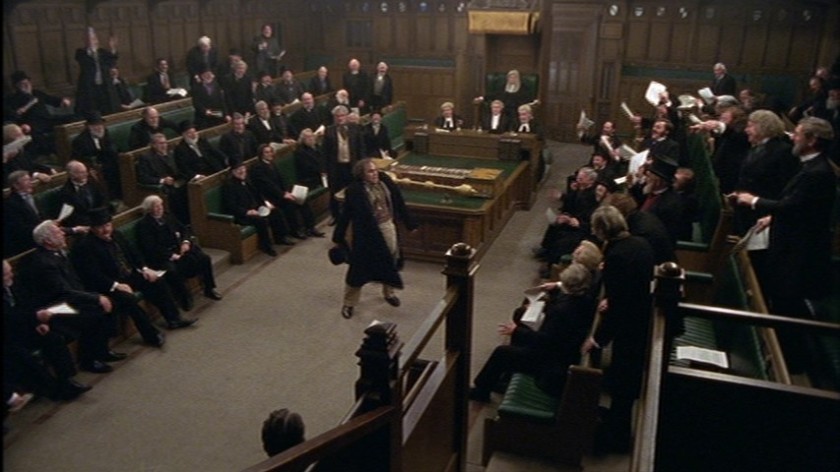For a course at the Oscher LifeLong Learning Institute at George Mason University
Day: Tuesday mornings, 11:50 am -1:15 pm,
Jan 23 – Feb 13
4 sessions On-line (location of building housing the office: 4210 Roberts Road, Fairfax, Va, Tallwood)
Dr Ellen Moody
Women in and Writing Detective Fiction (a continuation of The Heroine’s Journey)
We will explore the genre of detective stories of the mystery-thriller type from the angle of the woman writer, detective, victim & murderer: our three books will be two classics of the 1930s, and one from 40s years later which in many outward conventions continues the popular and acclaimed type: Josephine Tey’s (Elizabeth MacKintosh) The Daughter of Time (a deconstruction of the history of the stories of mysteries concerning a 15th century British king, Richard III); Dorothy Sayer’s Gaudy Night (set in a real early women’s college, which Sayers attended, it is also feminist academic and publishing satire & a lover story); and P.D. James’s An Unsuitable Job for a Woman (more centrally what readers expected post WW2 from a mystery-thriller, but it takes unexpected directions because the detective is a woman). We’ll also see (outside class) and discuss (in class) J.B. Priestley’s An Inspector Calls (as rewritten by Helen Edmunsen and directed by Aisling Walsh) and Robert Altman and Jerome Fellowes’s brilliantly parodic Gosford Park. This is a feminist literary history course, an outgrowth in one direction of the course I taught this past winter: The [archetypal] Heroine’s Journey
Required Texts:
Josephine Tey, The Daughter of Time. This exists in many editions (as do the two books below). I have a 1988 copy of the Simon and Schuster Touchstone books, 978-0-684-80386-9; and another by Pushkin Press (a very pretty one), ISBN 978-1782278429
Dorothy L. Sayers, Gaudy Night, HarperCollins Bourbon book, ISBN 978-0-06-219653-8
P. D. James, An Unsuitable Job for a Woman, Scribner’s, mostly recently reprinted 2019. ISBN 978-0-7432-1955-6
Required Movies:
An Inspector Calls. Scripted Helen Edmunsen, directed Aisling Walsh, a re-do of J.B Priestley’s original play (1945), adapted into a film in 1954 (featuring Alistair Sims as “Poole” in lieu of Goole). Available at Amazon Prime, Brit-Box, Vudu, and YouTube. Also as a DVD for sale, with an interesting feature by Priestley’s son.
Gosford Park. Directed Robert Altman, scripted Julian Fellowes. Streams on Amazon Prime, YouTube, Vudu, and can be bought as a DVD with interesting features (e.g., voice-over commentary as you watch the film).
Supplementary:
There are audio readings of all three books; and you can buy the plays/scripts for the movies:
Priestley, J. B. An Inspector Calls and Other Plays. NY: Penguin, 2000 reprint of 1947 book. The script does not differ as much as one might think; what is dramatized differs.
Fellowes, Julian and Robert Altman. Gosford Park: The Shooting Script. NY: Newmarket Press, 2002.

Sophie Rundle as Eva Smith/Daisy Renton/Mrs Birling/Alice Grey confronts the “boss,” Ken Stoff as Arthur Birling, about to fire her for leading a strike (An Inspector Calls, 2015)
Format: The class will be a mix of informal lecture and group discussion.
Jan 23: 1st week: Introduction on detective versus spy fiction, Scottish literature, Richard III. Then we discuss Josephine Tey and The Daughter of Time.
Jan 30: 2nd week: Women’s detective fiction, Agatha Christie and the 1930s. Then Dorothy Sayers and the first half of Gaudy Night. The 2015 An Inspector Calls.
Feb 6: 3rd week: Carry on with An Inspector Calls and move to the second half of Gaudy Night. The importance of the recurring detective and his or her story.
Feb 13: 4th week: The evolution of the women’s detective novel (some contemporary women writers) and P. D. James’ career. How does An Unsuitable Woman for the Job differ from our expectations. If time permits, I’ll discuss James’s sequel to Pride and Prejudice, Death Comes to Pemberley (her last published novel)

Gosford Park, the Manor house as first seen when cars drive up (Gosford Park, 2001)
Recommended outside reading or watching (if you want to go further):
Cavender, Gray and Nancy C. Jurik. Justice Provocateur: Jane Tennison and Policing in Prime Suspect. Univ of Illinois, 2012.
Coomes, David. Dorothy L. Sayers: A Careless Rage for Life. Illinois: Lion book, 1992.
Craig, Patricia and Mary Cadogan. The Lady Investigates: Women Detectives and Spies in Fiction. NY: St Martin’s 1981. Begins with mid-19th century figures.
Gidez, Richard. P.D. James: the new queen of crime. Boston: Twayne, 1986. Necessarily does not include 2/3s of her (later) career in writing.
Hicks, Michael. Richard III: The Self-Made King. Yale Univ, 2019
James, P.D. Talking about Detective Fiction. NY: Knopf, 2009
Hannay, Margaret P. As her whimsey took her: Critical Essays on the Fiction of Dorothy Sayers. Kent State, 1979.
Henderson, Jennifer Morag. A Life of Josephine Tey. 1988; reprint Sandstone Press, Scotland, 2015.
Klein, Kathleen Gregory. The Woman Detective: Gender and Genre. 2nd edition. Univ of Illinois, 1995. The best single book on women’s detective fiction, with the proviso she deals only with professional police officer-detectives.
Reynolds, Barbara. Dorothy Sayers: A biography: her life and soul. NY: St Martin’s, 1993.
Symons, Julian. Bloody Murder: From the Detective Story to the Crime Novel: A History. Faber and Faber, 1972. The best of all the surveys.
Walton, Samantha. “The Scottish landscape in the crime novels of Josephine Tey,” Crimelights: Scottish Crime Fiction, Then and Now. Triet, 2014.
Worsley, Lucy. The Art of the English Murder. NY and London: Pegasus, 2014
Young, Laurel A. P.D. James: A companion to the mystery fiction. McFarland, 2017

There was a Margaret Sutton who herself wrote the Judy Bolton series (1932-67)









